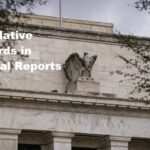Tainted property refers to property or assets obtained through illegal or unethical activities and generally prevented from being used in legitimate transactions. This concept is particularly important in a financial context because it covers legal and compliance aspects, as well as reputational risks faced by companies and individuals involved in transactions with suspect properties. In some cases, use of this tainted property can result in lawsuits, sanctions, fines, or other losses for the parties involved. In a financial context, tainted property is usually associated with money laundering, terrorism financing, or human trafficking. Therefore, financial institutions have an obligation to identify and prevent their customers from using suspicious funds in the financial system. These institutions are also required to report suspicious activities to the competent authorities, such as the Financial Action Task Force (FATF) or the Financial Supervisory Agency (FINCEN).
Relevant examples of tainted property can be found in the banking and real estate industries. As an illustration, an individual who earns money through drug trafficking then uses the money to buy a house in a developed country. These assets would then be examples of tainted property because they originate from illegal activities. If financial institutions fail to identify the source of these funds, they may be deemed to be providing services that support money laundering, and may face legal consequences and reputational risks. Likewise, in the case of companies or governments that channel funds to terrorist organizations or criminal groups, the assets provided can also be considered tainted property. The parties responsible for the management and use of these funds may be subject to sanctions by governments and international institutions. Therefore, avoiding engaging in transactions with tainted property is essential for companies and individuals to ensure compliance with the law and maintain their reputation. In addition, companies and individuals must work with financial institutions to implement strict due diligence practices, such as verifying the source of funds and conducting regular transaction monitoring. By undertaking efforts to prevent and mitigate these risks, companies and individuals can reduce the chances of being involved in transactions with tainted property and ensure the integrity of the global financial system.
Regulations and Legal Implications
The regulations and laws surrounding Tainted property are a complex area and vary between different jurisdictions. In general, Tainted property refers to property that has been contaminated by illegal activities, such as money laundering or other criminal activities. Some relevant regulations in this context are the Anti-Money Laundering (APU) Law, the Government Goods and Services Procurement Law, and the Consumer Protection Law. The aim of this regulation is to stop the circulation of proceeds from crime, prevent third party interference in property transactions, and protect the interests of consumers. Understanding the regulations regarding Tainted property is very important for both owners and users of the property. This is because if a property is proven to have been contaminated by illegal activities, the owner or user of the property can face legal sanctions. These legal sanctions can include fines, confiscation of assets, and even prison sentences. Therefore, it is important for individuals and organizations to ensure that they comply with existing regulations regarding Tainted property.
On the other hand, other legal impacts that may arise from ownership or use of Tainted property include civil liability. Property owners or users who are proven to have contributed to environmental pollution or harm third parties can be sued in civil law. In addition, the brand or reputation of individuals or companies involved in Tainted property cases may also be negatively impacted due to media and public harassment. To avoid legal repercussions that may arise from owning or using Tainted property, individuals and organizations should always carry out due diligence before buying, selling, or using new property. This includes investigating the history of the property, checking the background of previous owners, as well as conducting a thorough risk evaluation regarding the legality of the property. In this way, individuals and organizations can protect themselves from legal risks and ensure that they only engage in legal and safe property transactions. Apart from that, working with a lawyer or legal advisor who is experienced in the field of Tainted property will also help to identify potential problems and provide advice regarding reducing legal risks. Equipped with an understanding of applicable regulations and adequate preventive measures, individuals and organizations can avoid involvement in Tainted property cases and keep their interests protected.
Risk Identification and Management
Tainted property identification is an important step in the risk management process. The method commonly used is to carry out due diligence before purchasing or taking over the property. Due diligence involves a detailed investigation of a property’s history, including a search of public records, interviews with previous owners, and working with appropriate authorities to determine whether the property has been a crime scene or associated with illegal activity. Additionally, environmental service providers and other professionals may be involved in the identification process. Once Tainted property risks are identified, there are several ways to manage them. One way is to design an effective mitigation strategy. Mitigation strategies may include actions such as environmental remediation or physical cleaning of the property if necessary, which will help remove contaminants or potential sources of problems prior to future reuse. In addition, communication with shareholders and the surrounding community to explain the steps taken is also important so that they understand that the property has been managed well.
Risk prevention is an important aspect of risk management relating to Tainted property. Ways to prevent this can include establishing internal policies and procedures, such as establishing a system for conducting regular due diligence for companies or individuals seeking to purchase or take over property. Additionally, companies need to work closely with local authorities to ensure compliance with relevant local regulations and requirements. This collaboration will help prevent legal violations or environmental pollution, as well as reduce reputation risks that could endanger business.
Professional involvement in Tainted property risk management is another important step. Engaging environmental, technical and legal experts who have experience in risk identification and mitigation can provide the support and insight needed to deal with these issues successfully. This collaboration can help companies overcome challenges efficiently, minimize negative impacts on projects and increase the chances of success in managing Tainted properties. In addition, the expertise possessed by these professionals will ensure that companies can navigate applicable laws and regulations, thereby avoiding potential sanctions or lawsuits that may arise in the process. With support from experts, companies are expected to be able to overcome Tainted property problems more effectively and create a safe and sustainable environment for businesses and communities.
Impact on Related Parties
The impact of Tainted Property on Related Parties can be felt by various stakeholders, such as asset owners, companies and banking institutions. Asset owners will of course experience a decrease in the value of the assets they own due to the Tainted Property issue. For example, if a property is associated with criminal activity, the resale value of the property will decrease and cause financial losses for the owner. Apart from that, companies involved in managing high-value assets or properties will also be affected if a Tainted Property case occurs. They have to bear the risk of a declining reputation in the eyes of consumers and the wider community. This risk could make customers reluctant to use the company’s services, potentially endangering the continuity of their business.
From the perspective of banking institutions, the Tainted Property issue also has a negative impact. Banks that maintain property transactions that are indicated as “tainted” will certainly feel worried because they could be accused of being banks that do not comply with anti-money laundering and terrorism financing regulations. This of course has an impact on the reputation of financial institutions and can even cause the bank to lose its license if pathological non-compliance is recorded. To overcome Tainted Property problems, there are several solutions that can be taken by the parties concerned. First, asset owners must be more careful in carrying out activities related to property, for example by investigating the history of the property before buying or selling. Second, property management companies need to adopt transparent and responsible business practices. Third, banking institutions must ensure their compliance with anti-money laundering and eradicating terrorist financing. In this way, awareness of Tainted Property issues can increase and solutions can be found in addressing this problem.









